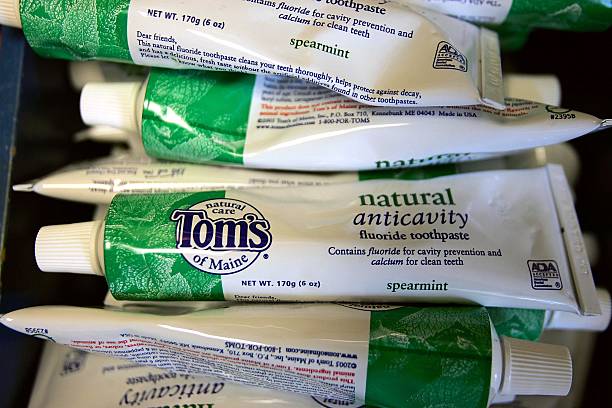
Following a safety inspection, the Food and Drug Administration (FDA) issued a warning to personal care brand Tom’s of Maine after discovering disease-causing bacteria, mold-like, and powdery substances in its products and facilities.
This year’s inspection at the facility cited several violations, including bacteria in water used to make toothpaste and bacterial growth in another type of toothpaste.
The FDA’s letter, published on November 5, revealed that an inspector found several types of bacteria in the water supply at Tom’s facility in Sanford, Maine. The inspection also uncovered a “black mold-like substance” and “powder residues” on or near pieces of equipment.
“It is essential that your facility is in a good state of repair and sanitary conditions are maintained to protect drug products from potential routes of contamination,” the FDA said in the letter.
The agency added that Tom’s of Maine “failed to follow appropriate written procedures, designed to prevent objectionable microorganisms in drug products not required to be sterile.”
According to NPR, among the bacteria identified were Paracoccus yeeii, Pseudomonas aeruginosa—which can lead to blood, lung, and urinary tract infections—and Ralstonia insidious, which can cause sepsis.
The company said it ensures that its natural products are safe. It is also working closely with the FDA to address the issues found at the Maine plant, Tom’s added.
RELATED: Is Your Toothpaste Making You Sick? 5 Ingredients to Avoid
In a written statement, Tom’s of Maine said it has established safety measures in response to the violations identified in the inspection. The company highlighted the importance of “making safe and effective natural products” and maintaining “trust” among consumers.
“We’re working with the FDA and are remedying the issues raised in their May inspection of the Tom’s manufacturing plant in Sanford, Maine,” the statement reads. “We have always tested finished goods before they leave our control, and we remain fully confident in the safety and quality of the toothpaste we make.”
The company continued: “In addition, we have engaged water specialists to evaluate our systems at Sanford, have implemented additional safeguards to ensure compliance with FDA standards, and our water testing shows no issues. We are also making capital investments as part of an ongoing, significant upgrade of the Sanford plant’s water system.”
The FDA criticized Tom’s for failing to investigate hundreds of product complaints related to odor, color, and taste. Tom’s responded by stating it handles complaints with a “risk-based approach” and that individual complaints are insufficient to deem a product inadequate, NPR reported.
Despite the health violations, the FDA reported that Tom’s continued to use this water in its products and to rinse equipment, causing a potential threat to consumers.
“Tom’s of Maine continued to distribute merchandise based on the test results of final products but did not investigate the quality of water used in the process,” the agency noted.
Tom’s of Maine, which sells personal care products such as toothpaste, mouthwash, lip balms, and fragrances, prides itself on using “naturally sourced and naturally derived ingredients,” according to its website.
Owned by Colgate-Palmolive, its products are available at major retailers like Whole Foods, Target, Walmart, and Kroger.
Meanwhile, Tom’s explained that the black substance was in a hard-to-reach area prone to moisture but has since been thoroughly cleaned. The company stated it had cleaned the powder residue off a tray used for its Silly Strawberry Anticavity toothpaste before adding solid materials.
The FDA has required Tom’s to submit several documents, including assessments and remediation plans for its operations, contamination hazards, testing methods, cleaning procedures, and more.








